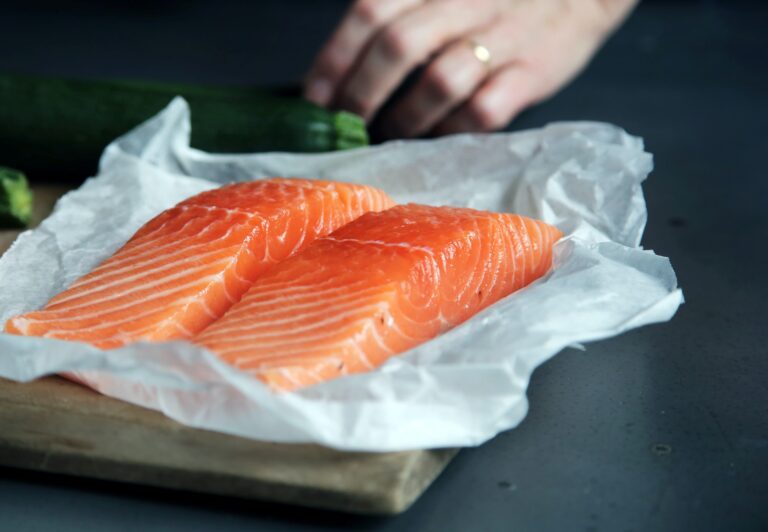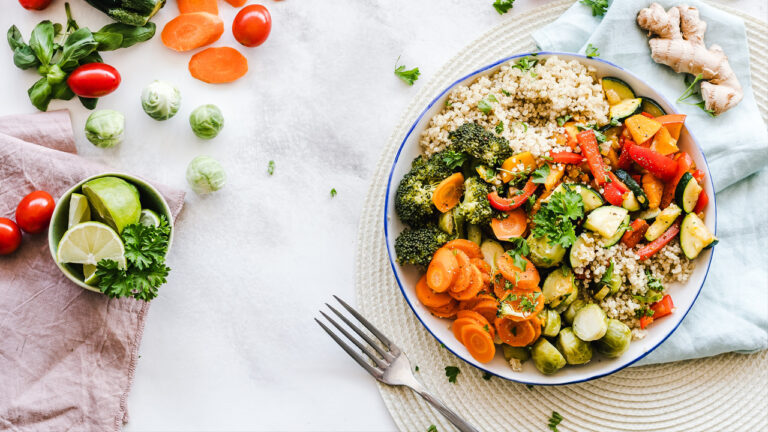10 Foods That Fight Inflammation of Joints (Arthritis)
At present, there is no cure for arthritis, but one way to help manage arthritis-related conditions is through diet.

Arthritis is a term used for a range of inflammatory conditions affecting the body's bones, muscles and joints.
There are different types of arthritis, including:
Osteoarthritis: This develops in the joints with overuse and is often associated with ageing and joint pain. The Australian Institute of Health and Welfare (AIHW) says that osteoarthritis is a chronic and progressive condition that affects the hands, spine and joints. It’s the most common form of arthritis.
Rheumatoid Arthritis: This is an autoimmune disease. According to the AIHW, with rheumatoid arthritis the body’s immune system attacks its own tissue. It can affect anyone at any age and may cause significant pain, swelling and even disability.
Joint Pain and Inflammation
According to the AIHW, arthritis can have a profound impact on a person’s quality of life due to acute and chronic joint pain, physical limitations, and the stress of managing a long-term condition.
With one in seven Australians having some form of arthritis, and 50% of those experiencing moderate to severe pain, it’s no surprise that many are looking for ways to relieve arthritis symptoms and improve overall wellbeing.
In addition to medication, diet can play a key role in managing arthritis symptoms. Certain anti-inflammatory foods and drinks like green tea and leafy greens may help reduce inflammation, strengthen bones and support the immune system.

Looking for Foods That Could Fight Inflammation of Joints?
Eating well can help support your joints, maintain a healthy weight, and reduce the risk of developing other chronic conditions. Below is a list of ten foods and a few extra that may help reduce joint inflammation and ease arthritis symptoms.
1. Fish
Fatty fish like salmon, tuna, mackerel and sardines are rich in omega-3 fatty acids, which have been shown to reduce inflammation and help manage symptoms. They also contain vitamin D, which can support bone health.
For those who aren’t fans of fish, omega-3 supplements like fish oil, krill oil or flaxseed oil may be helpful alternatives. Be sure to speak with a healthcare professional before starting supplements.
2. Broccoli
Broccoli contains sulforaphane, a compound believed to block enzymes linked to joint destruction and inflammation. It’s also high in vitamins K and C, and calcium all beneficial for bone strength. Other vegetables in the cruciferous family, such as Brussels sprouts and cabbage, offer similar benefits.
3. Nuts
Walnuts are packed with healthy fats, antioxidants, and compounds like polyphenols that may reduce inflammation. They’re particularly rich in omega-3s, making them an excellent snack for people with rheumatoid arthritis.
Other beneficial nuts include almonds, pistachios and pine nuts. These nuts contain magnesium, zinc, and vitamin E all of which can support joint and immune health.
4. Oils
Extra virgin olive oil is one of the best anti-inflammatory foods available. It contains oleocanthal, which has similar properties to nonsteroidal anti-inflammatory drugs (NSAIDs). Avocado oil and safflower oil may help lower cholesterol, while walnut oil contains 10 times more omega-3s than olive oil.
Oils rich in good fats or fish oil supplements can support heart health and help fight inflammation throughout the body. saturated fat
5. Seeds
Chia seeds and flaxseeds are both high in alpha-linolenic acid (ALA), a plant-based omega-3 fatty acid with anti-inflammatory properties. These tiny seeds are also rich in fibre, helping with digestion, cholesterol control, and blood sugar regulation.
Including a tablespoon or two in your cereal, smoothies or yoghurt can be an easy way to add anti-inflammatory benefits to your daily meals.

6. Fruits
Cherries are high in anthocyanins, powerful antioxidants that help lower inflammation and may reduce the frequency of gout attacks. These same compounds are found in other berries like strawberries, raspberries, blueberries and blackberries all of which can support immune function and joint health.
Citrus fruits like oranges, grapefruits and limes are rich in vitamin C, a key antioxidant that supports collagen formation and joint health. Research suggests that vitamin C may help prevent inflammatory arthritis and reduce the severity of arthritis pain.
7. Garlic
Onions, garlic and leeks belong to the allium family and are some of the richest dietary sources of flavonoids, compounds that may protect against joint damage by neutralising free radicals. Garlic also contains diallyl disulphide, which may reduce cartilage-damaging enzymes. They also have other health benefits such as fighting against inflammation.
8. Whole Grains
Whole grains such as brown rice, quinoa, oatmeal and wholegrain cereals can help lower levels of C-reactive protein (CRP), a marker of inflammation. Their high fibre content also supports gut health and helps control blood sugar.
Unlike refined grains, whole grains offer lasting energy and can contribute to a balanced, anti-inflammatory diet.
9. Beans and Legumes
Beans like black beans, kidney beans, red beans, pinto beans and lentils are full of fibre, antioxidants and plant-based protein, some are also rich in folic acid, magnesium, potassium, and iron nutrients essential for joint and immune health.
10. Green Tea
Green tea is another excellent choice. It contains polyphenols and EGCG, antioxidants that may reduce inflammation and protect joints from damage, particularly in people with rheumatoid arthritis.
Mediterranean Diet for Joint Health
Along with adding specific anti-inflammatory foods, adopting a Mediterranean diet may support long-term management of arthritis.
According to Queensland Health, the Mediterranean diet emphasises whole foods such as:
Vegetables and fruits
Wholegrain breads and cereals
Extra virgin olive oil
Fish and seafood
Legumes, beans, nuts and seeds
Onion, garlic, and fresh herbs
This diet is high in fibre and antioxidants and low in processed foods and saturated fats. It supports weight management, reduces inflammation and provides a sustainable way to improve overall wellbeing.
Foods to Limit or Avoid
Certain foods may increase inflammation or worsen arthritis symptoms. These include:
Processed foods: Often high in sugar, salt, and unhealthy fats.
Red meat and fried foods: These can increase inflammatory markers.
Sugary drinks and snacks: Excess sugar intake has been linked to higher CRP levels.
Alcohol: Too much alcohol may worsen inflammation and joint pain.
Choosing anti-inflammatory foods more often can help reduce your reliance on processed and inflammatory items.
Lifestyle Tips to Support Joint Health
Making positive changes beyond diet can also help you manage arthritis symptoms and fight inflammation:
Stay hydrated: Water helps flush out toxins and supports joint lubrication.
Weight Management: Excess weight places added stress on joints, especially the knees and hips.
Exercise regularly: Gentle activities like walking, swimming, or yoga can improve flexibility and reduce stiffness.
Manage stress: Chronic stress can trigger inflammatory responses in the body.
Combining a healthy diet with these lifestyle habits may enhance your quality of life and reduce arthritis pain.
Speak to a Professional
Remember, it’s always best to speak with your GP or a dietician when it comes to changes to your diet. A qualified professional will be able to recommend a diet that is suitable to your personal goals and needs.
Managing Arthritis and Staying Healthy with the Right Support
At IRT, we support older Australians in living well with arthritis:
Retirement Villages for vibrant and connected living.
Aged Care Centres with expert support for your needs.
Home Care Services to help you stay independent and active at home.
Frequently asked questions
Yes! Certain foods can help reduce inflammation, ease joint pain and support overall wellbeing. While food alone won’t cure arthritis, choosing a healthy, anti-inflammatory diet can play a big role in managing your symptoms and improving quality of life
Many health professionals recommend the Mediterranean diet. It focuses on whole, plant-based foods like vegetables, legumes, fruits, whole grains and healthy fats such as olive oil. This way of eating can reduce inflammation, support joint health, and help manage your weight.
Yes! Highly processed foods, sugary drinks, excess alcohol, and foods high in saturated fat may worsen inflammation. Limiting red meat and fried food can also be helpful. Everyone reacts differently, so it’s worth keeping a food diary to track any triggers.
Green tea contains powerful antioxidants like EGCG, which may help protect cartilage and reduce joint inflammation. It’s also a hydrating and low-sugar option if you’re looking to cut back on soft drinks.
It’s always best to get your nutrients from whole foods where possible, as they come with other benefits like fibre and antioxidants. However, in some cases (e.g. omega-3s or vitamin D), a supplement may be helpful. Always check with your doctor or dietitian before starting any new supplement.

Keep healthy and active with IRT
At IRT, we’ve been helping older Australians live their best lives for more than 50 years. We offer retirement living, residential aged care and home care services in various locations across NSW, ACT and Qld. We believe it's our values as a community-owned provider that help us to be the best at what we do.
Find out moreSubscribe to our newsletter
You may also like
What is the difference between CHSP and Home Care Packages?
If you’re interested in getting some home care, you’ve likely heard of the terms ‘Home Care Package’ and ‘Commonwealth Home Support Program.’
Your guide to moving into a retirement village
When the decision to move into a retirement village has been made, the thought of packing up your old home and moving in to your…


